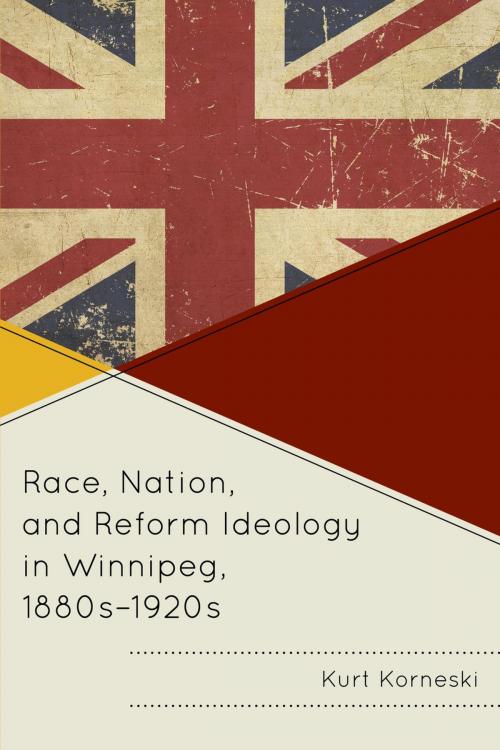Race, Nation, and Reform Ideology in Winnipeg, 1880s-1920s
Fiction & Literature, Literary Theory & Criticism, Canadian, Nonfiction, History, Americas, Canada| Author: | Kurt Korneski | ISBN: | 9781611478501 |
| Publisher: | Fairleigh Dickinson University Press | Publication: | June 9, 2015 |
| Imprint: | Fairleigh Dickinson University Press | Language: | English |
| Author: | Kurt Korneski |
| ISBN: | 9781611478501 |
| Publisher: | Fairleigh Dickinson University Press |
| Publication: | June 9, 2015 |
| Imprint: | Fairleigh Dickinson University Press |
| Language: | English |
During the late nineteenth and early twentieth centuries, a host of journalists, ministers, medical doctors, businessmen, lawyers, labor leaders, politicians, and others called for an assault on poverty, slums, disreputable boarding houses, alcoholism, prostitution, sweatshop conditions, inadequate educational facilities, and other "social evils." Although they represented an array of political positions and advocated a range of strategies to deal with what they deemed problems, historians have come to term this impulse "urban reform" or the "urban reform movement." This book considers the history of reform ideology in Canada. It does so by considering four leading reformers living in what might be described as the most Canadian of Canadian cities, Winnipeg, Manitoba. While the book engages in discussions/debates surrounding the particular individuals it considers, its more general argument is that to understand the history of reform in Canada requires viewing reformers as simultaneously experiencing and responding to two basic phenomena simultaneously. It requires understanding them as confronting the polarizing tendencies, exploitation, and sometimes grinding poverty that was central to the economic order they (often unwittingly) helped to impose in northern North America. It also, however, requires seeing them as fundamentally shaped by the process and legacy of the dispossession of Aboriginal peoples, and the changing nature of Aboriginal-settler relations that were also central to the development of Canada.
During the late nineteenth and early twentieth centuries, a host of journalists, ministers, medical doctors, businessmen, lawyers, labor leaders, politicians, and others called for an assault on poverty, slums, disreputable boarding houses, alcoholism, prostitution, sweatshop conditions, inadequate educational facilities, and other "social evils." Although they represented an array of political positions and advocated a range of strategies to deal with what they deemed problems, historians have come to term this impulse "urban reform" or the "urban reform movement." This book considers the history of reform ideology in Canada. It does so by considering four leading reformers living in what might be described as the most Canadian of Canadian cities, Winnipeg, Manitoba. While the book engages in discussions/debates surrounding the particular individuals it considers, its more general argument is that to understand the history of reform in Canada requires viewing reformers as simultaneously experiencing and responding to two basic phenomena simultaneously. It requires understanding them as confronting the polarizing tendencies, exploitation, and sometimes grinding poverty that was central to the economic order they (often unwittingly) helped to impose in northern North America. It also, however, requires seeing them as fundamentally shaped by the process and legacy of the dispossession of Aboriginal peoples, and the changing nature of Aboriginal-settler relations that were also central to the development of Canada.















